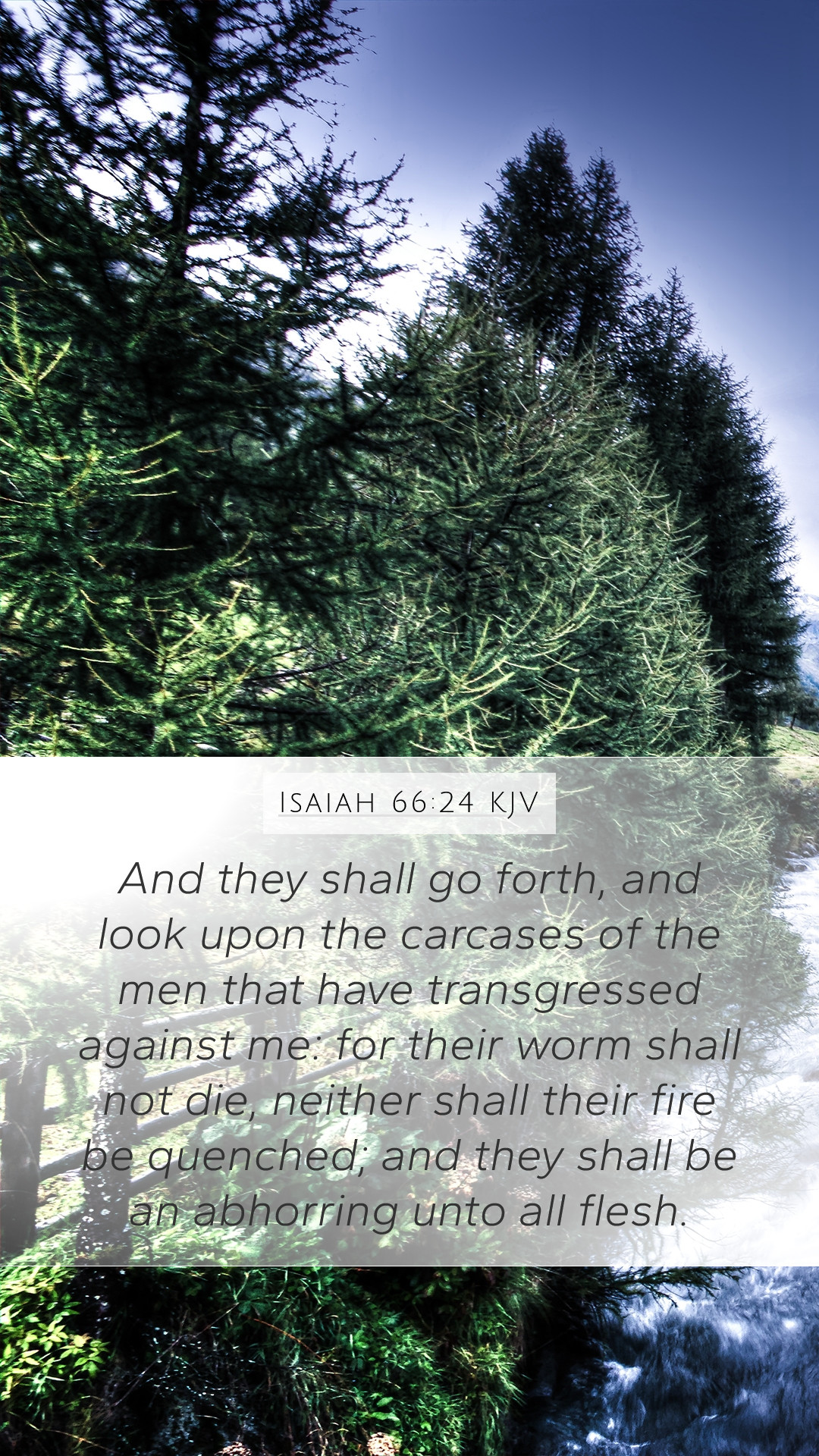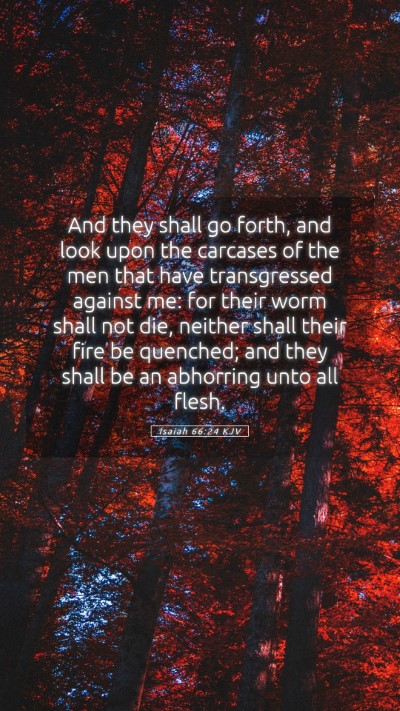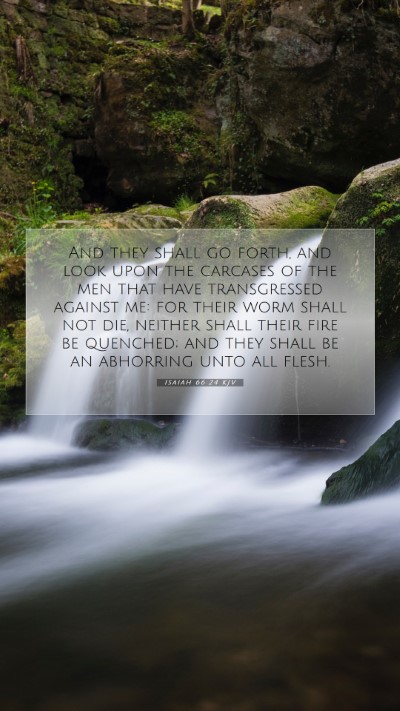Understanding Isaiah 66:24
Isaiah 66:24 states: "And they shall go forth, and look upon the carcasses of the men that have transgressed against me: for their worm shall not die, neither shall their fire be quenched; and they shall be an abhorring unto all flesh." This verse concludes the Book of Isaiah with a powerful image of judgment and its consequences. It serves as a stark reminder of God's righteousness and the fate of those who oppose Him.
Bible Verse Meaning
This passage emphasizes the severity of God's judgment on sinners. The imagery of "carcasses" and the eternal "worm" and "fire" symbolize the destructive nature of sin and the eternal consequences that follow. The phrase "their worm shall not die" alludes to a state of ongoing decay, representing the never-ending torment for the wicked. In essence, it underscores the importance of obedience to God and the dire consequences of transgression.
Bible Verse Interpretations
- Matthew Henry: Henry emphasizes the eternal judgment that lies ahead for those who reject God's law. He points out that this judgment is not just physical but spiritual, indicating a separation from God's grace.
- Albert Barnes: Barnes interprets the phrase as a representation of the ongoing punishment after death. He highlights the imagery that serves as a warning to those living in sin and calls for repentance.
- Adam Clarke: Clarke reflects on the aspect of public disgrace in this verse. He mentions how the sight of the carcasses and the unquenchable fire signify the ultimate defeat and humiliation of the wicked.
Bible Verse Understanding
Isaiah 66:24 encapsulates several profound truths regarding divine justice. First, it serves to illustrate God's holiness and the seriousness of persistent disobedience. Second, it reveals the indifference of the wicked toward their fate, which leads to their eternal shame and disgrace. Ultimately, this verse calls believers to recognize the gravity of sin and the need for a righteous and holy life.
Bible Verse Explanations
- Symbolism of the Worm: The worm's eternal existence symbolizes the perpetual nature of judgment and decay that reflects the consequences of sin.
- Unquenchable Fire: This phrase signifies the continuous torment that awaits those who rebel against God's will. It reflects the ultimate separation from His presence.
Scripture Analysis
Analyzing Isaiah 66:24 in the context of the whole chapter reveals a theme of eschatological judgment, contrasting the fate of the righteous and the wicked. The previous verses depict the glory that awaits those who serve God, which starkly contrasts with the fate of those who do not. This duality serves to encourage the faithful while warning the unrepentant.
Biblical Exegesis
In a deeper exegesis of Isaiah 66:24, we can see a reflection of the broader narrative of judgment in the Old Testament. This passage ties to several prophetic themes found throughout scriptures where judgment is an integral part of God's plan. The emphasis is on the holiness of God and the seriousness of sin.
Bible Study Insights
This verse can serve as a foundation for discussing concepts of divine judgment and human accountability in Bible study groups. It's a powerful reminder of the eternal implications our actions can have and the need for continual reflection on how we live our lives in the light of God's Word.
Related Bible Cross References
- Mark 9:48: "Where their worm dieth not, and the fire is not quenched."
- Matthew 25:41: "Depart from me, you cursed, into the everlasting fire prepared for the devil and his angels."
- Revelation 20:10: "And the devil that deceived them was cast into the lake of fire and brimstone, where the beast and the false prophet are, and shall be tormented day and night forever and ever."
Applying This Verse to Daily Life
Understanding Isaiah 66:24 urges believers to live a life that reflects obedience to God's commands. It encourages the faithful to share the message of repentance and salvation with others, reminding them of the consequences of a life lived apart from God. In practical terms, believers can apply this warning by assessing their own lives and encouraging accountability within Bible study groups.
Conclusion
Isaiah 66:24 serves as a powerful warning about the realities of sin and judgment. Through the insights and interpretations provided by various commentators, we see that this verse is an exhortation to pursue holiness and remain faithful to God's commandments. It is a call to understand the depth of God's justice and the eternal significance of our choices.


